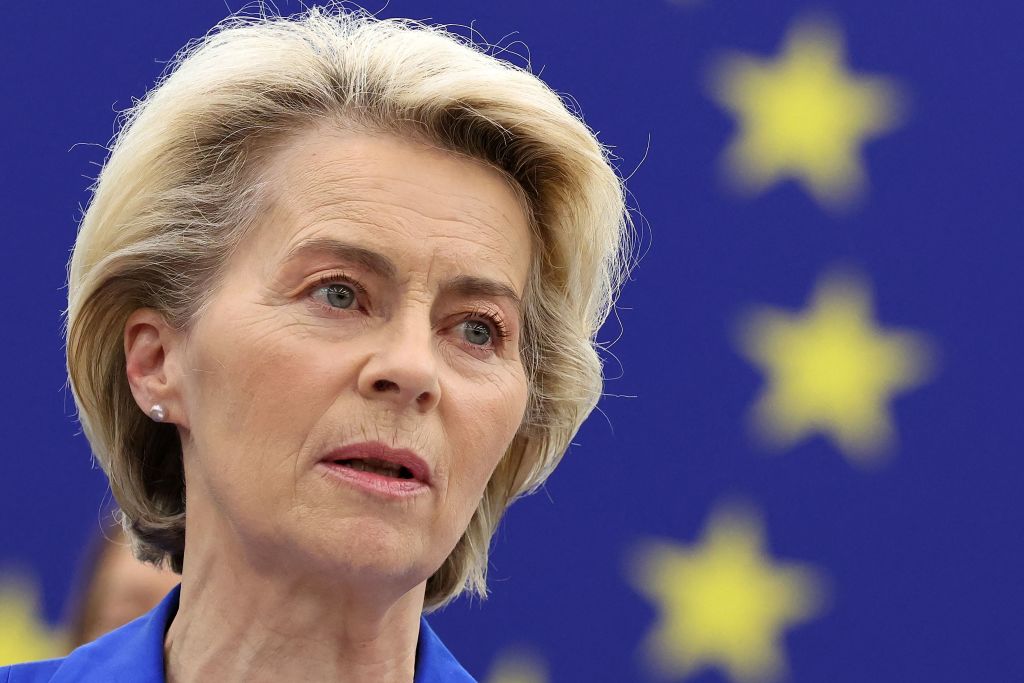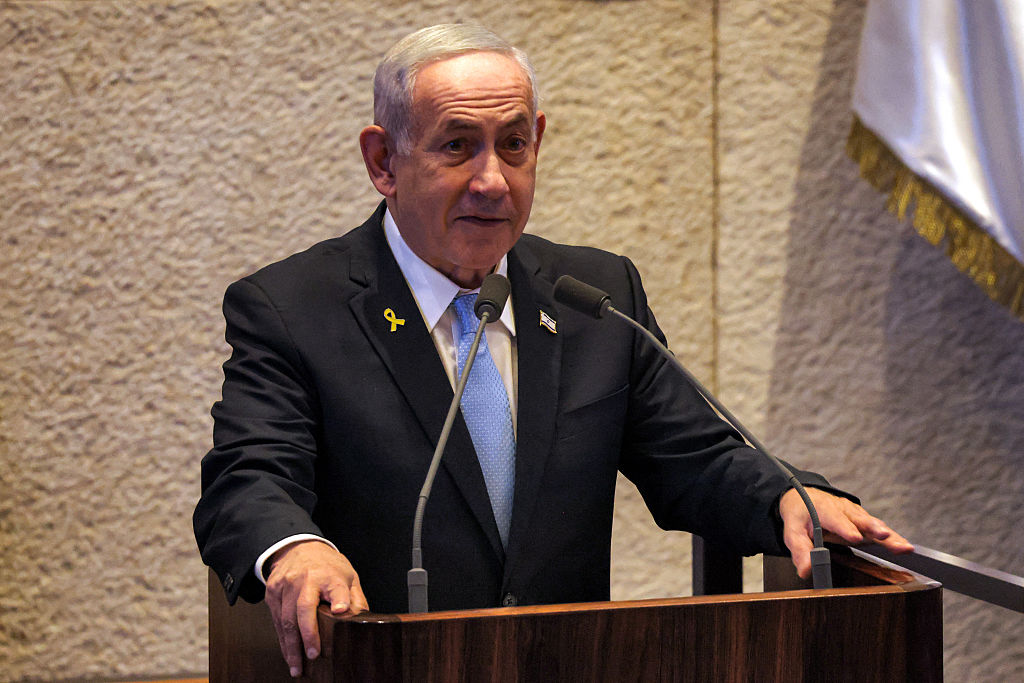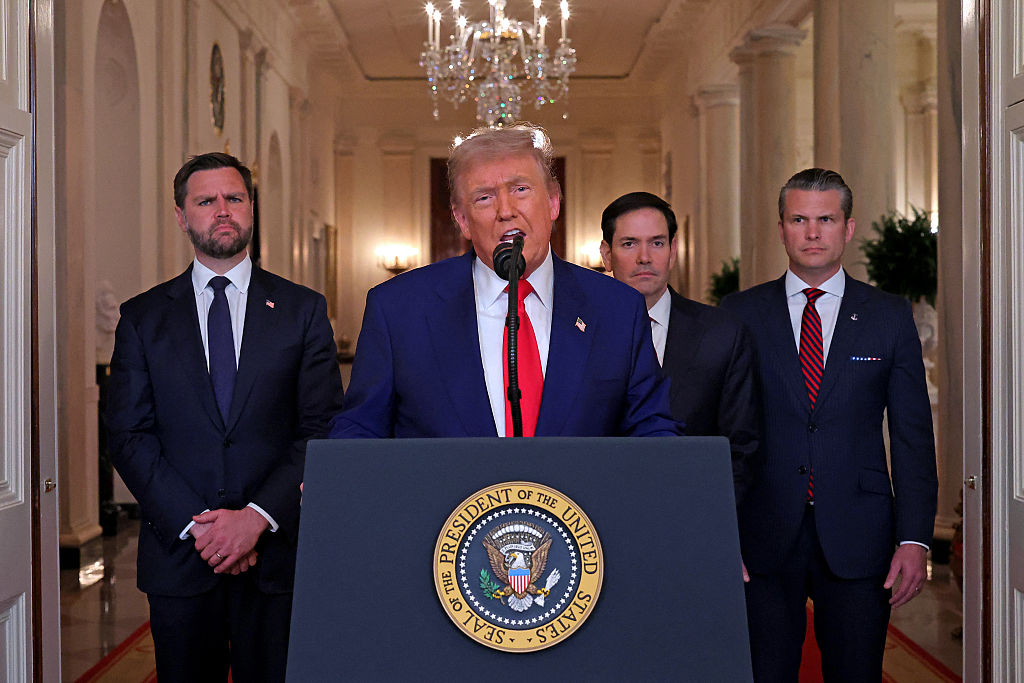The European Union’s response to the war between Israel and Gaza has been badly muddled. While Joe Biden and Rishi Sunak have been making their view crystal clear on Israel’s right to defend itself against Hamas’s attacks, Josep Borrell, the top EU diplomat, has toed a different line. Borrell this week called for what was effectively an Israeli ceasefire to allow humanitarian aid into Gaza.
Israel’s more ardent European allies are furious. “We cannot contain the humanitarian catastrophe if Gaza’s terrorism continues. There will be no security and no peace for either Israel or the Palestinians if this terrorism continues,” Annalena Baerbock, Germany’s foreign minister, said.
Her Austrian counterpart, Alexander Schallenberg, echoed that view: “Of course everyone would wish that the violence comes to an end. But Israel has the right to self-defense.”
Theodore Roosevelt described the cardinal rules of foreign policy: ‘Walk softly, but carry a big stick.’ The EU obeys neither
Obviously any decent person wants to get humanitarian aid in, at least assuming it is not immediately annexed by Hamas. However Borrell’s statement turns a blind eye to a simple truth: while Hamas’s rocket attacks continue, a ceasefire is impossible.
Borrell also said the pause was needed “for giving back the hostages” held by Hamas. But this risks playing into Hamas’s hands. Negotiations imply giving as well as receiving: in other words, making serious concessions to a murderous terrorist cabal for the release of victims it should never have dragged away in the first place. Indeed, one senior Hamas official has already hinted that this is precisely Hamas’s position: Israel, if it wants its people back, will have to leave Hamas alone. If EU foreign policy is effectively reduced to appeasing a terrorist group by calling for the war crime of hostage-taking to be rewarded with temporary immunity from attack, something is not right.
How did the EU get here? The answer lies in the way the organization operates. Courting controversy on the international stage isn’t the EU way. The Euro-establishment is far happier with a policy that doesn’t ruffle too many feathers at home, largely supports progressive orthodoxy abroad and aims to preserve a quiet life, if necessary by the handing out of large sums of money.
On this occasion, the establishment has got exactly what it wants, though there has been an interesting twist. Oddly enough, there is one very senior figure in the EU with the right instincts on Israel and Gaza: none other that Commission president Ursula von der Leyen. Two weeks ago, she paid a flying visit to Israel, meeting Benjamin Netanyahu and giving him an assurance of support in Israel’s hour of need. Last Thursday she confirmed her position, making a speech in Washington in which she unequivocally supported Israel’s right to defend itself and laying the blame for the wretched plight of the Palestinians where it belongs: at the feet of Hamas and its henchmen.
Unfortunately this only inflamed matters. The reaction, which led ultimately to Borrell’s ceasefire call, was swift. The nomenklatura immediately closed ranks against von der Leyen. The Brussels diplomatic blob lambasted her for not stressing EU support for Palestinian statehood. An unnamed senior Eurocrat openly briefed against her, denying that her Washington speech represented the EU view. And, in a demonstration of obstructiveness of which the UK civil service would be proud, 800 Berlaymont functionaries joined in writing to complain of her pro-Israel partiality.
Nor was it only the Euro-civil service wading in. There were also problems in the parliament, where after the Israel trip, Iratxe García, the leader of the second largest political caucus, the Socialists and Democrats, bluntly accused both von der Leyen and Parliament president Roberta Metsola of “unacceptable bias” in favor of Israel.
Ursula von der Leyen’s initiative also faced stiff opposition abroad, both in Ireland, where Deputy Prime Minister Micheál Martin procured a Dáil resolution long on demands for restraint by Israel and short on similar demands against Hamas, and in France, where Prime Minister Elisabeth Borne on Monday said something similar in Paris.
Faced with opposition like this, it’s not surprising that Josep Borrell has sat on the fence. The path of least resistance, of not antagonizing supporters of the Palestinians, is more appealing than taking a firmer stance. For thirty years, the EU has had the ability to set and express a common foreign policy. Unfortunately, because of the way the organization operates, this seems to mean not so much a policy of standing up for decency as of appeasement of troublemakers in the name of a quiet life. We saw it in the aftermath of the Russian invasion of Ukraine, where formulaic repetitions of Slava Ukraini in the European Parliament contrasted rather uncomfortably with an unwillingness of many MEPs and Brussels bureaucrats to do a great deal about it. Unfortunately we are now seeing much the same thing over Hamas and Gaza.
At the turn of the twentieth century, Theodore Roosevelt described the cardinal rules of foreign policy: “Speak softly, but carry a big stick.” The EU obeys neither, and you suspect is subsequently regarded with contempt by both sides. Unfortunately, its pusillanimous approach has not only harmed its own reputation. It also now threatens to undermine the efforts of those, such as Biden and Sunak, who see Hamas for what it is: the enemy not only of Israel but of decent Palestinians. Now more than ever the US and UK need to keep an absolutely firm line, and continue to make the point that only by helping Israel draw the fangs of that organization can we achieve what we want and the people of Gaza need: a peaceful and prosperous Palestine.
This article was originally published on The Spectator’s UK website.


























Leave a Reply